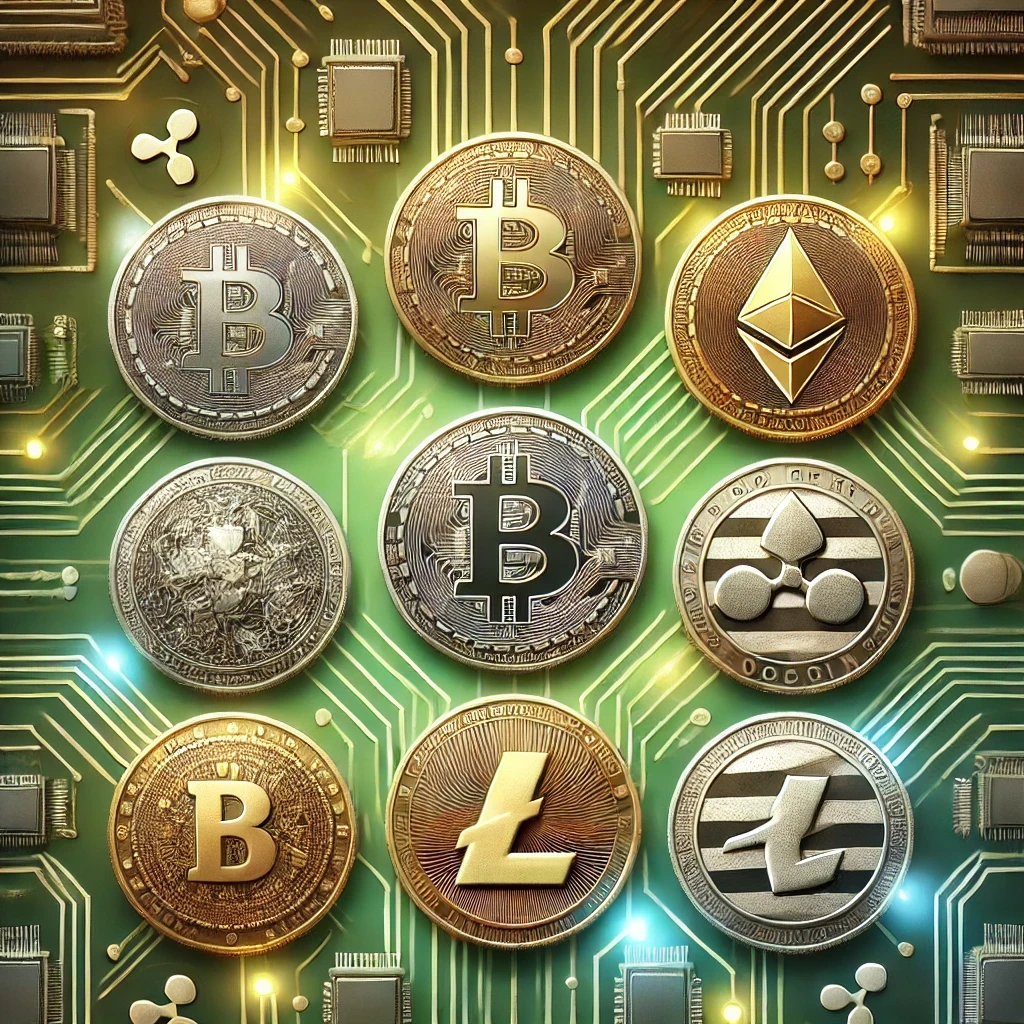In the rapidly evolving world of digital finance, cryptocurrency token have emerged as a cornerstone of the blockchain ecosystem. These digital assets are often confused with traditional cryptocurrencies, but they offer a wide range of features and applications that extend beyond simple transactions. This comprehensive guide aims to decode crypto tokens by exploring their definition, background, pros, cons, impact, and key takeaways, providing a thorough understanding for beginners and experienced crypto enthusiasts alike.
Backgrounds
What are cryptocurrency token?

A cryptocurrency token is a type of digital asset that operates through smart contracts on an existing blockchain, most notably Ethereum. Tokens operate by utilizing the infrastructure of other blockchains, unlike coins like Bitcoin or Ethereum, which operate on their own dedicated blockchain. This distinction is crucial to understanding their role and usefulness within the broader cryptocurrency landscape.
Tokens can represent a variety of assets and rights, including utility tokens that provide access to specific services or goods, security tokens that represent ownership or investment in an asset, and non-fungible tokens (NFTs) that are unique and cannot be exchanged on a one-to-one basis like traditional currencies.
How do I work with Cryptocurrency token?
Tokens are created using standard templates provided by blockchain platforms like Ethereum. These platforms provide frameworks, such as the ERC-20 standard, that ensure tokens have a consistent and interoperable structure. This standardization facilitates the creation, transfer, and management of tokens across different platforms and applications (Coinbase, 2024; Cryptocurrency Facts, 2024).
Smart contracts play a pivotal role in the functionality of tokens. They are self-executing contracts that write the terms of the contract directly into code. Smart contracts automatically enforce and execute the terms of the contract, eliminating the need for intermediaries and reducing the risk of fraud.
Cryptocurrency Token Types

- Utility tokens: These tokens provide the owner with access to a product or service within the blockchain ecosystem. Examples include tokens used to access decentralized storage or premium features of a dApp.
- Security token: Represents an investment contract for an asset, such as real estate or stock. Security tokens are subject to federal securities regulation and provide investors with rights similar to traditional securities.
- Governance tokens: Used within a decentralized autonomous organization (DAO), these tokens give holders the right to vote on decisions that affect the future direction of the blockchain.
- Non-fungible token (NFT): A unique token that represents ownership of a specific item, such as digital art, music, or virtual real estate. NFTs are not redeemable on a one-for-one basis (Cryptocurrency Facts, 2024).
Strengths and weaknesses

Cryptocurrency token have various strengths and weaknesses that affect their adoption and use. Here’s a closer look at two aspects:
| Power | Weaknesses |
| Tokens can represent a wide range of assets and rights, from digital art to shares in a company. | The regulatory environment for tokens is uncertain and evolving, which can raise legal issues. |
| Leveraging existing blockchains allows for faster and cheaper transactions compared to traditional financial systems. | Tokens are vulnerable to hacking, fraud, and technical glitches, which can result in significant losses. |
| Creating and distributing tokens is easier and less resource-intensive than launching a new blockchain. | The price of a token can be very volatile and make for a speculative investment. |
| Tokens enable new business models and decentralized applications, spurring innovation in a variety of industries. | Understanding the technical and financial aspects of tokens can be difficult for non-technical people. |
Impact of Cryptocurrency token
Cryptocurrency token have far-reaching effects across a wide range of sectors and applications. Some of the most important effects include
- Financial inclusion: Tokens can provide financial services to unbanked and underbanked individuals, especially in developing countries. This financial democratization can promote greater economic participation and empowerment (Investopedia, 2024).
- Decentralized finance (DeFi): Tokens are the backbone of DeFi applications that provide decentralized alternatives to traditional financial services such as lending, borrowing, and trading, which can lead to a more transparent and accessible financial system (Coinbase, 2024).
- Funding: Tokens enable companies to raise capital efficiently and transparently through mechanisms such as initial coin offerings (ICOs) and security token offerings (STOs). These funding methods have become a popular alternative to traditional venture capital and public offerings (Cryptocurrency Facts, 2024).
- Digital ownership: NFTs allow for the creation and transfer of digital ownership of unique assets such as art, music, and virtual real estate. This has opened up new avenues for artists and creators to monetize their work (Investopedia, 2024).
- Programmable money: Integrating tokens and smart contracts allows for programmable money, where transactions are automated and conditions can be met when certain criteria are met. This improves the efficiency and security of financial transactions (Cryptocurrency Facts, 2024).
- Tokenization of assets: Physical assets such as real estate and art can be tokenized to facilitate fractional ownership and transferability. This can increase the liquidity and accessibility of traditionally illiquid assets (Coinbase, 2024).
Conclusion
Cryptocurrency token are a revolutionary element of the blockchain and digital finance landscape. They offer a versatile, efficient, and innovative way to represent and transfer value, enabling new business models and decentralized applications. However, their adoption and use comes with significant challenges, including regulatory uncertainty, security risks, and market volatility.
For anyone looking to navigate the evolving digital economy, understanding the intricacies of cryptocurrency token-from their creation and function to their strengths and weaknesses-is crucial. As the blockchain ecosystem continues to mature, tokens are likely to play an increasingly important role in shaping the future of finance and beyond.
Key takeaways
- Definition: A cryptocurrency token is a digital asset created using smart contracts on an existing blockchain, such as Ethereum.
- Type: Tokens can be utility tokens, security tokens, governance tokens, or non-fungible tokens (NFTs).
- Strengths: Tokens offer universality, efficiency, accessibility, innovation, and programmability.
- Weaknesses: They face regulatory risks, security concerns, market volatility, complexity, and scalability issues.
- Impact: Tokens enhance financial inclusion, power DeFi applications, enable financing, facilitate digital ownership, allow for programmable funds, and support the tokenization of physical assets.
- Bottom line: Cryptocurrency token are the backbone of digital finance, offering opportunities and challenges. Understanding their nuances is essential to harnessing their potential in the modern economy.
Source
- Coinbase. What is a token?.
- Cryptocurrency Facts. What is a cryptocurrency token?.
- Investopedia. What are crypto tokens, and how do they work?.
